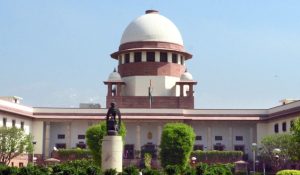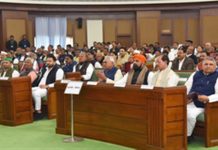The Supreme Court on July 17 reserved its verdict on whether to decriminalize section 377 saying that courts cannot wait for a “majoritarian government” to decide on enacting, amending or striking down a law if it violates fundamental rights.
 A five-judge Constitution bench headed by Chief Justice of India Dipak Misra, while hearing pleas challenging the validity of section 377 of the IPC, made clear that it may not strike down the law completely and deal with it to the extent it relates to consensual acts between two adults.
A five-judge Constitution bench headed by Chief Justice of India Dipak Misra, while hearing pleas challenging the validity of section 377 of the IPC, made clear that it may not strike down the law completely and deal with it to the extent it relates to consensual acts between two adults.
“If section 377 of the IPC goes away entirely, there will be anarchy. We are solely on consensual acts between man-man, man-woman. Consent is the fulcrum here. You cannot impose your sexual orientation on others without their consent,” the SC said.
The bench comprising of justices RF Nariman, AM Khanwilkar, DY Chandrachud and Indu Malhotra, added that “We would not wait for the majoritarian government to enact, amend or not to enact any law to deal with violations of fundamental rights.”
Justice Nariman added, “The whole object of the fundamental rights chapter is to give power to court to strike down laws that majoritarian governments do not touch due to political considerations. We are not bothered about what government does. They may enact, repeal, do whatever they want. It is our duty to uphold fundamental rights.”
Advocate Manoj George, appearing for two Christian organisations which want gay sex to remain as crime said that holding the law unconstitutional would have a cascading effect on personal laws of many communities and said, “Parliament must deal with it in its legislative wisdom”.













